National assessment drives the development of basic education in Kangbashi
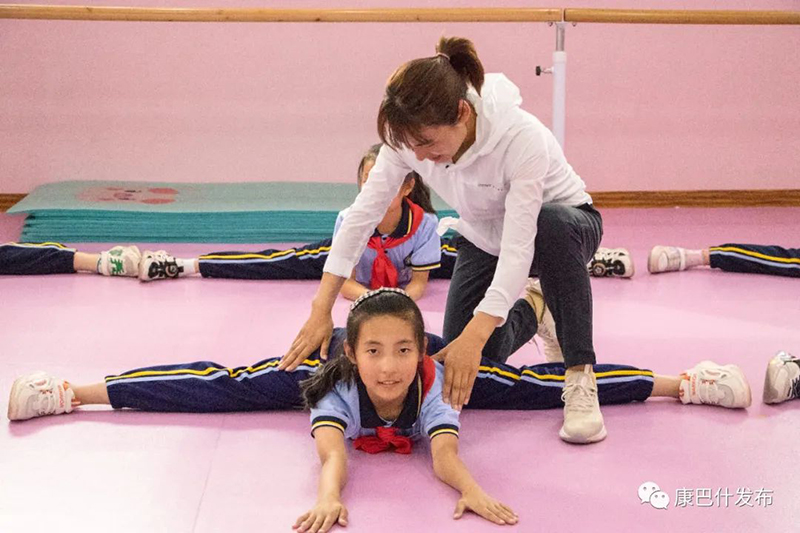
A teacher from Kangbashi guides her students through stretches during a sports class.
The district of Kangbashi in Ordos, North China's Inner Mongolia autonomous region, has made great strides in promoting the high-quality development of its compulsory education, and is better meeting public demand for education through the implementation of a nationwide campaign on monitoring the quality of basic education over the past few years.
According to a national report on the 2020 quality of basic education released by the Basic Education Evaluation Center in the Ministry of Education in April, Kangbashi ranked among the top, not just in the autonomous region but in the country on the whole, in terms of its moral education and science.
The category of moral education covers eight aspects of students' daily performance, while the general conditions of science primarily monitor their academic performance in science (physics, biology and geography) courses.
A total of 600 students from 12 primary and middle schools in Kangbashi took part in the second round of national assessments in the quality of basic education, in September 2020.
The final findings of the report showed that grade-four students in Kangbashi achieved a full score in three aspects in the category of moral education, and five aspects in the category of science. Grade-eight students scored 10 points in 4 aspects in the category of moral education, and 15 aspects [1] in the category of science.
To undergo the acceptance and review of its basic education by the Basic Education Evaluation Center, Kangbashi has adopted a wide range of measures to further improve the quality of its basic education.
For instance, the district has strictly limited the number of students in a class, installed its classrooms with multi-functional facilities for music and arts, guaranteed necessary expenditures on education and relevant infrastructure, encouraged elite schools to set up their branches in distant areas and strengthen their cooperation with those in underdeveloped regions, organized veteran teachers to conduct their tours in all local schools, and pressed ahead with national actions on easing the burden of excessive homework and off-campus tutoring for students.
In its next step, Kangbashi will work hard to get anticipatory results in reducing the burden of excessive homework and off-campus tutoring for students, improve the quality and expand the channels of after-school services on offer, respond to the common and unique needs of students, expand the coverage of sports and interest classes, enhance the teachers’ social status and raise their salaries, deepen reforms in education, provide schools with more autonomy in the governance of teaching forces, and promote the inclusive and balanced development of its educational resources.
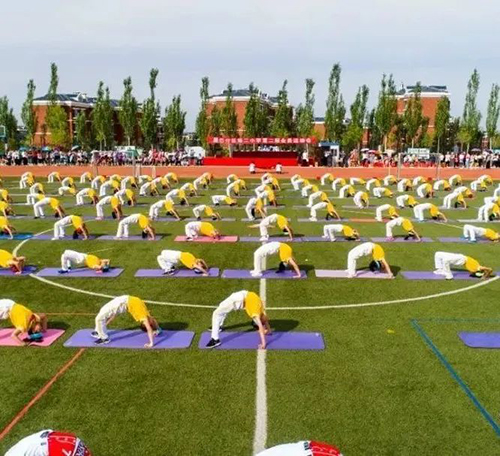
Caption 2: Students in Kangbashi attend their sports class on the playground.
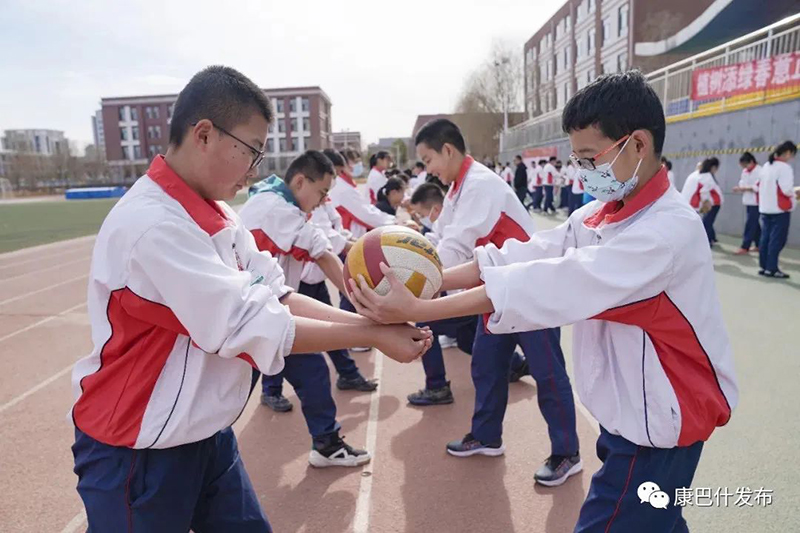
Caption 3: Two lines of students in Kangbashi pass a ball to their partners on the playground.
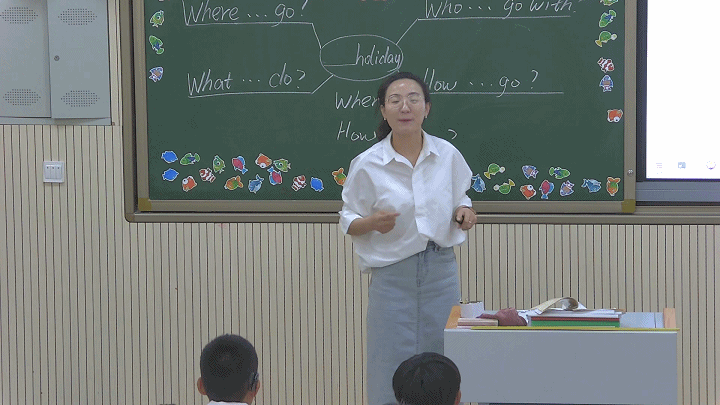
Caption 4: A teacher in Kangbashi gives her class.
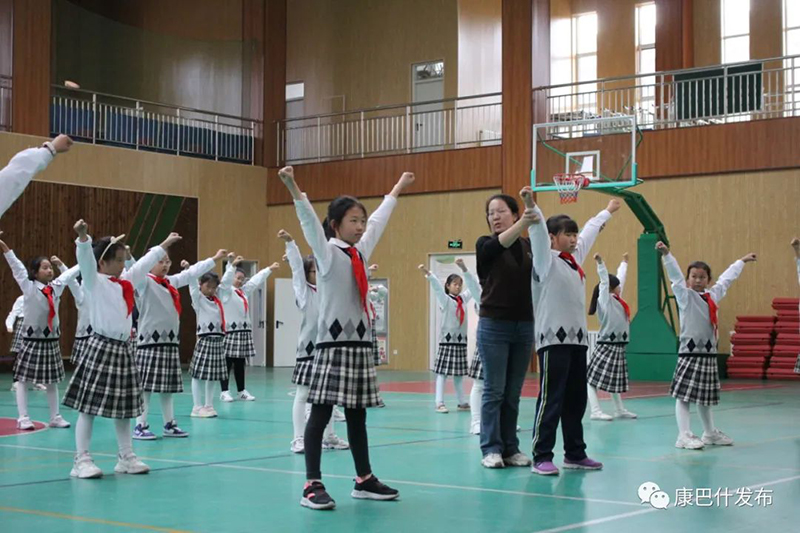
Caption 5: A teacher from Kangbashi guides students through stretches during a sports class.
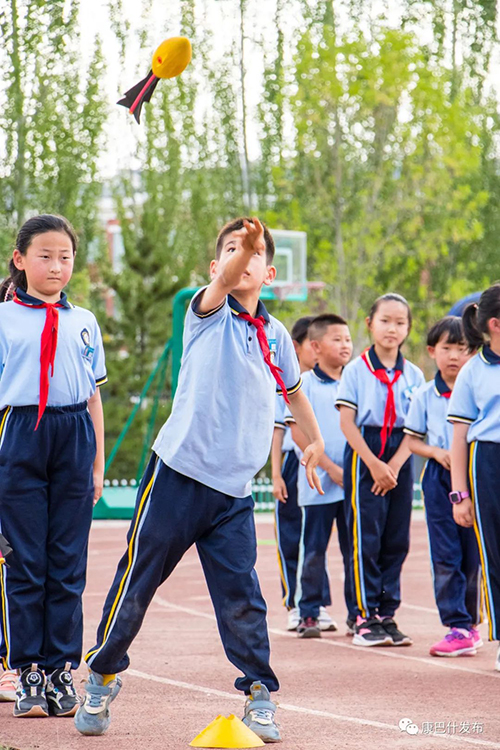
Caption 6: Students in Kangbashi attend their sports class on the playground.
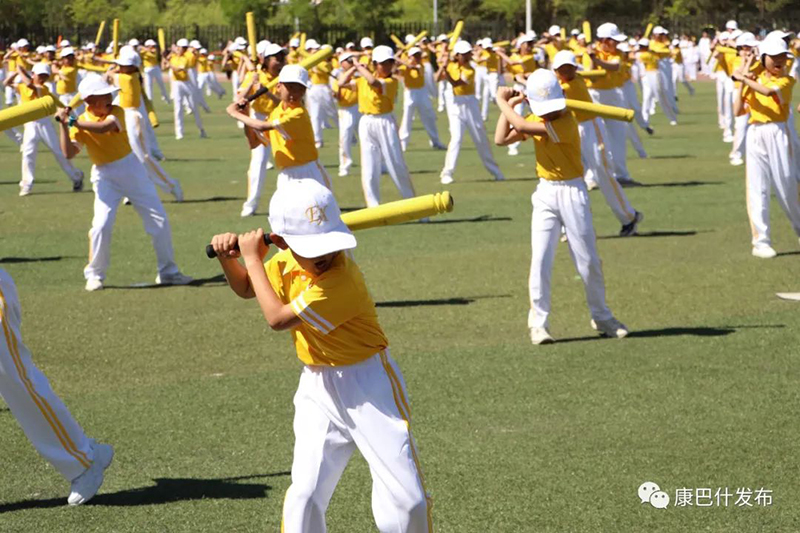
Caption 7: Students learn to play baseball during a sports class.








